Tag Archives: Menakhem Ben-Yami

Fishing – what’s changed?
When Europe was inhabited by tribes of intelligent savages, fishing was one of the main sources of food. The associated seamanship and boat-building enabled the development of marine navigation and other sea trades. One of the oldest fishing centres called Sidon, which according to scholars of Semitic languages means ‘The Fishery,’ was populated by Phoenicians, who with their genius for navigation and commerce, specialised in trade in dried and salted fish and in collection of certain mollusks, of which they prepared the Tyrian purple that for the richness variety and stability of its hues, was prized higher than any other ancient dye. >click to read< 19:49
Fishing Illegally – Menakhem Ben-Yami
 According to the EU, NOAA and other “regulators,” ‘Illegal, Unreported and Unregulated fishing (IUU) depletes fish stocks, destroys marine habitats, distorts competition, puts honest fishers at an unfair disadvantage, and weakens coastal communities, particularly in developing countries,’ etc., etc. The sundry of published documents, articles, and even learned papers, published not only in the fisheries-related, but also in the general press in recent years, are all bombarding us with IUU. If words could sink vessels, there’d be many more wrecks decorating the bottom of the sea. Read the rest here 16:21
According to the EU, NOAA and other “regulators,” ‘Illegal, Unreported and Unregulated fishing (IUU) depletes fish stocks, destroys marine habitats, distorts competition, puts honest fishers at an unfair disadvantage, and weakens coastal communities, particularly in developing countries,’ etc., etc. The sundry of published documents, articles, and even learned papers, published not only in the fisheries-related, but also in the general press in recent years, are all bombarding us with IUU. If words could sink vessels, there’d be many more wrecks decorating the bottom of the sea. Read the rest here 16:21
CLIMATE, POLLUTION, AND OVERFISHING
 It seems that at least every 5 years I’ve got to return to the dispute of overfishing vs. other factors responsible for depleted fish populations. I surely wrote about it on this page in 2002, 2007 and 2012. Now, with a feeling of déjà vu, I’m back at it.,, The trigger was a letter sent to me by my friend Cormac Burke in which a British Fisherman Skipper (ret) M W Jackson wrote to Fishing News. Mr. Jackson was complaining of the lack of judgment in which the general press distributed misinformation by conservationists who are self proclaimed experts,,, Read the rest here 09:17
It seems that at least every 5 years I’ve got to return to the dispute of overfishing vs. other factors responsible for depleted fish populations. I surely wrote about it on this page in 2002, 2007 and 2012. Now, with a feeling of déjà vu, I’m back at it.,, The trigger was a letter sent to me by my friend Cormac Burke in which a British Fisherman Skipper (ret) M W Jackson wrote to Fishing News. Mr. Jackson was complaining of the lack of judgment in which the general press distributed misinformation by conservationists who are self proclaimed experts,,, Read the rest here 09:17
Climate, pollution and overfishing – Menakhem Ben-Yami
It seems that at least every five years I have to return to the dispute of overfishing versus other factors responsible for depleted fish populations. I wrote about it on this page in 2002, 2007 and 2012. Now, with a feeling of déjà vu, I’m back at it. The trigger was a letter sent to me by a friend, in which a British fishing skipper was complaining of the lack of judgment with which the general press distributed misinformation “by conservationists who are self proclaimed ‘experts’…very good at manipulating the media who love them, and publish every dubious, or in some cases, completely false, stories given to the press”. Read the rest here 12:44
Banking on Wealth? by Menakhem-Ben Yami
 Current trends in Western fisheries economics, as exemplified by the position of the World Bank, religiously promote free markets for fishing rights During the last decade, the World Bank (WB) has been showing an increasing interest in world fisheries. In 2005, the WB, along with key donors and stakeholders, created the Global Program on Fisheries (GPO-PROFISH) and in 2009, to amplify its work in fisheries, another global partnership with the fishing industry, the Alliance for Responsible Fisheries (ALLFISH). Read more here 13:37
Current trends in Western fisheries economics, as exemplified by the position of the World Bank, religiously promote free markets for fishing rights During the last decade, the World Bank (WB) has been showing an increasing interest in world fisheries. In 2005, the WB, along with key donors and stakeholders, created the Global Program on Fisheries (GPO-PROFISH) and in 2009, to amplify its work in fisheries, another global partnership with the fishing industry, the Alliance for Responsible Fisheries (ALLFISH). Read more here 13:37
Is the World Bank among the prophets? – Menakhem Ben-Yami
 A new 80-page World Bank report entitled ‘FISH TO 2030: Prospects for Fisheries and Aquaculture’ – available for free online on the World Bank and FAO websites – represents a global view of fish supply and demand generated by an improved International Model for Policy Analysis of Agricultural Commodities and Trade (IMPACT). Based on trends in the production of fishing and aquaculture and in fish consumption, it produced – with the help of a multitude of graphs and tables – projections of global fish supply and demand all the way to 2030. In 16 years from now, my younger readers will be able to see how good it was. The report,,, Read more here 07:16
A new 80-page World Bank report entitled ‘FISH TO 2030: Prospects for Fisheries and Aquaculture’ – available for free online on the World Bank and FAO websites – represents a global view of fish supply and demand generated by an improved International Model for Policy Analysis of Agricultural Commodities and Trade (IMPACT). Based on trends in the production of fishing and aquaculture and in fish consumption, it produced – with the help of a multitude of graphs and tables – projections of global fish supply and demand all the way to 2030. In 16 years from now, my younger readers will be able to see how good it was. The report,,, Read more here 07:16
Speaking up for small-scale fisheries, Menakhem Ben-Yami
 The considerable social and economical role of small-scale fisheries (SSF) has long been recognised. They contribute significantly to food security, economic growth and development, and employment in coastal communities. SSF are characterised by great technical/operational diversity, diverse values and ways of life, and usually a low environmental impact. Read more here 11:39
The considerable social and economical role of small-scale fisheries (SSF) has long been recognised. They contribute significantly to food security, economic growth and development, and employment in coastal communities. SSF are characterised by great technical/operational diversity, diverse values and ways of life, and usually a low environmental impact. Read more here 11:39
Menakhem Ben-Yami interviews Robin Alden, Champion of small-scale fishermen

 Ms Alden is also a former Maine Commissioner of Marine Resources and a public member of the New England Fishery Management Council. Located in Maine, USA, Penobscot East Resource Center was established in 2003 as non-profit NGO with a mission to secure a future for the fishing communities of eastern Maine, and promote the community-based approach to resource management. continued@worldfishingandaquaculture
Ms Alden is also a former Maine Commissioner of Marine Resources and a public member of the New England Fishery Management Council. Located in Maine, USA, Penobscot East Resource Center was established in 2003 as non-profit NGO with a mission to secure a future for the fishing communities of eastern Maine, and promote the community-based approach to resource management. continued@worldfishingandaquaculture

































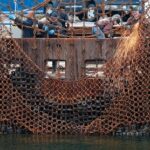
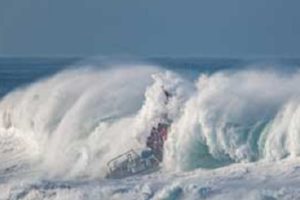

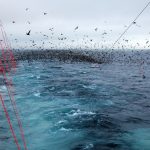
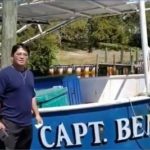


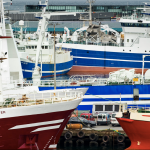

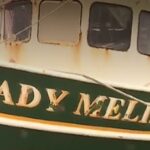

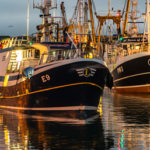



New name, new game? – Menakhem Ben-Yami looks at the recent shift in fisheries management science.
Share this post